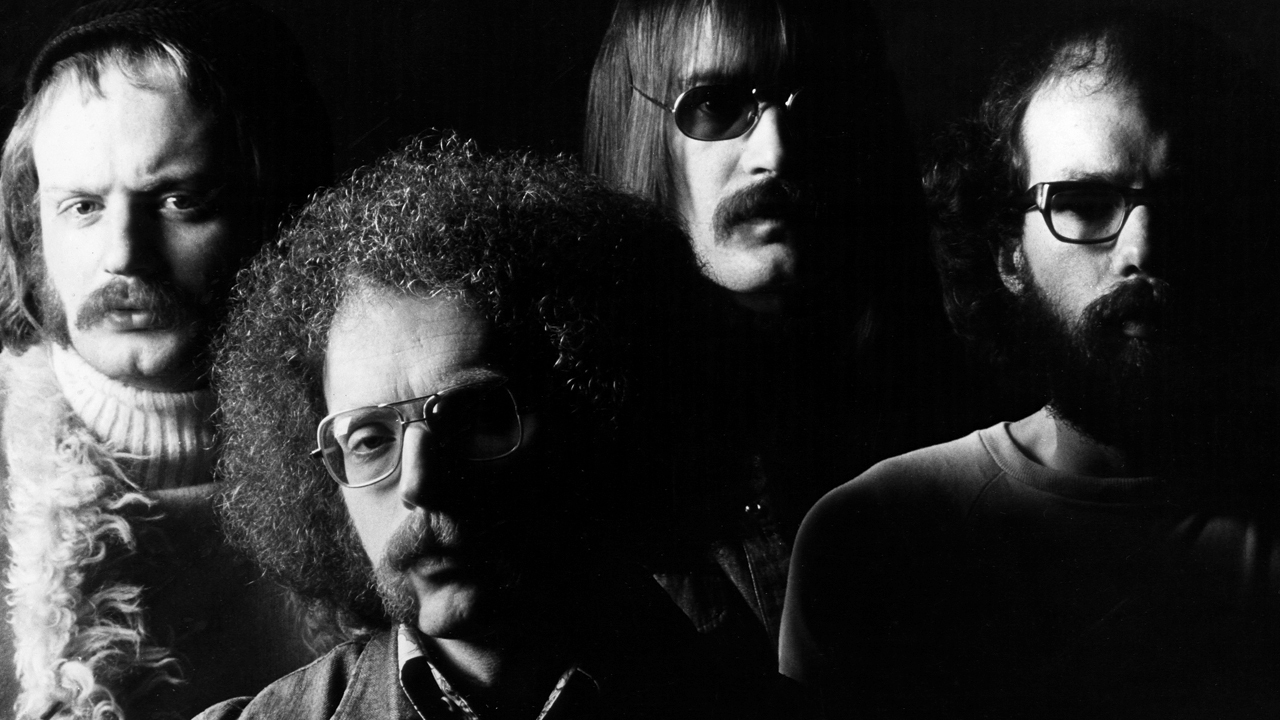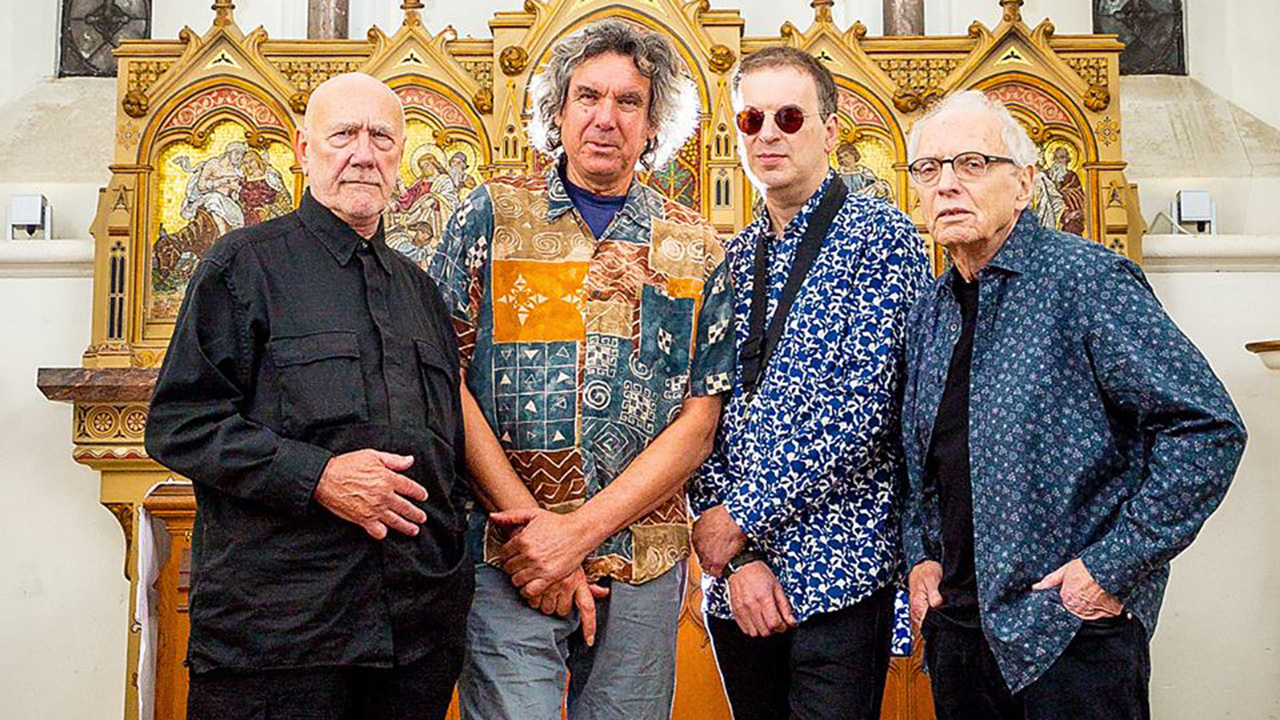
Select the newsletters you’d like to receive. Then, add your email to sign up.
You are now subscribed
Your newsletter sign-up was successful
Want to add more newsletters?

Every Friday
Louder
Louder’s weekly newsletter is jam-packed with the team’s personal highlights from the last seven days, including features, breaking news, reviews and tons of juicy exclusives from the world of alternative music.

Every Friday
Classic Rock
The Classic Rock newsletter is an essential read for the discerning rock fan. Every week we bring you the news, reviews and the very best features and interviews from our extensive archive. Written by rock fans for rock fans.

Every Friday
Metal Hammer
For the last four decades Metal Hammer has been the world’s greatest metal magazine. Created by metalheads for metalheads, ‘Hammer takes you behind the scenes, closer to the action, and nearer to the bands that you love the most.

Every Friday
Prog
The Prog newsletter brings you the very best of Prog Magazine and our website, every Friday. We'll deliver you the very latest news from the Prog universe, informative features and archive material from Prog’s impressive vault.
“I’ve been very lucky throughout my life as a player,” John Marshall [second left in the above photo] once told me in an interview. Marshall, who died on Saturday aged 82, had been dealing with multiple health challenges for several years that encroached on his ability to perform live. Although his last gig with Soft Machine was at Ronnie Scott’s club in June 2022, he nevertheless went on to record his final album with the group, Other Doors, just over a month later. Guitarist John Etheridge, who joined Soft Machine in 1975, recently told Prog," I was personally very keen to get this album done because I really felt it was our last chance to have John Marshall in the studio.” And so it proved to be. Even at the age of 81, Marshall’s presence throughout is reassuringly solid and right on the money.
Something of a legend amongst industry circles and very much regarded as the drummer’s drummer, JM, as he was known, enjoyed a long professional career that began in the early 1960s after leaving Reading University where he studied psychology. Blessed with a positive can-do attitude he quickly found work on stage and in sessions that encompassed pop, rock, jazz, folk, and blues notching up appearances next to Arthur Brown, ex-Yardbird guitarist, Top Topham, Alexis Korner, Graham Bond, Bill Fay, Ralph McTell, and many others, going on to rapidly become a fixture on the UK’s jazz scene. A part of the Graham Collier sextet, in which future Nucleus and Soft Machine partner, Karl Jenkins, was also a member, he would also appear with Mike Gibbs, Mike Westbrook’s group, and Keith Tippett’s band and numerous other groupings as the 1960s drew to a close.
During the 1970s his later resume would be quickly filled with stellar contributions to Jack Bruce’s band and Eberhard Weber’s Colours, but he is best known for his time in 1970 as a co-founder of Nucleus with whom he recorded their first three albums, and most notably, Soft Machine. When he joined in January 1972, he walked into a band in crisis following the sacking of drummer Phil Howard in the middle of recording their Fifth album. Marshall’s ability to reconcile freer percussive ideas with his trademark clarity, articulation, and driving force would frame the group’s rhythmic impetus. On 1973’s Seven, his composition, DIS, a claustrophobic collage of wooden and metallic shakers underpinned by a slowly surging reversed note strike from a large gong showed his more experimental and abstract interests, while 1975’s Bundles, their first album on the Harvest label, his explosive grooves provided a particularly propulsive bedrock for Allan Holdsworth’s free-wheeling playing.
With his afro-styled hair moving from side to side as he constantly chewed gum, powerful pulsing biceps, and constantly active lower body, on stage, Marshall embodied the rhythmic energy fuelling Soft Machine’s progress in the 1970s. His unmistakable stamp on the group’s sound from Fifth onwards brought swing, subtlety, groove, and fireworks whenever the occasion demanded. Alongside his bristling ensemble playing his showcase solos was always a highlight in Soft Machine shows. While the thought of drum solos was usually enough to send people running off the bar, JM’s playing was always thoughtful and spacious utilising a range of sonics from various gongs and additional percussion to his brightly-tuned Sonor kit drums.

Marshall attracted admirers far beyond jazz and jazz-rock circles. One especially dextrous solo of his, entitled, 5 From 13 (For Phil Seamen With Love & Thanks), from Soft Machine’s Six, was sampled to form the basis of Porcupine Tree’s Third Eye Surfer from 1991’s On The Sunday Of Life, while an earlier JM rimshot groove on Torrid Zone from Nucleus’s 1970’s Elastic Rock album was looped to create the spine of No-Man’s, Sweetside Silver Night from 1997’s Dry Cleaning Ray.
With a discography as extensive as Marshall’s it’s impossible to cover every noteworthy appearance. However, his work with Jack Bruce stands out. Initially appearing on Bruce’s Song For A Tailor, the ex-Cream bassist invited Marshall to join him on 1971’s Harmony Row, alongside his then-fellow Nucleus bandmate, Chris Spedding. The resulting album is a masterclass in how to apply both control and spontaneity within song-based material.
Marshall’s reputation drew attention from Europe which saw him working with several players of distinction in the 1970s including German guitarist Volker Kriegel, Dutch keyboardist Jasper Van’t Hoff, and master bassist, Eberhard Weber. Of the albums he albums recorded with Weber, 1978’s Silent Feet is absolutely required listening. Also of significance is another appearance on the famous ECM label. Achirana by Greek pianist Vassilis Tsabropoulos. Released in 2000 it features Marshall alongside bassist Arild Andersen embarking on improvisations so graceful in their bearing that they sound entirely composed. “Things like that basically comes down to listening, plain and simple,” he once told me in his usual self-effacing style. What Bruce, Weber, Andersen, and long-time rhythmic partner in Soft Machine, Roy Babbington, have in common is a supple, highly explorative style in their approach to their playing, a quality to which Marshall immediately and enthusiastically responded. His muscular style counterbalanced with his deep listening saw him mesh into whatever setting he found himself, producing a stream of ideas constantly feeding into the flow of the music.
Theo Travis, saxophonist, and flautist with Soft Machine since 2006, in a recent article about the band in Prog, observed, “Many drummers will want to show you what they can do with their best licks. But John plays what’s right for the music. He’s such a musical drummer and makes a lot of compositional-type rhythms and shapes within his playing. That’s just one of the great things about what he does.” That he was able to bring a lifetime of creativity and phenomenal musicianship to a group he loved playing with right up to the end of his career is a remarkable testament to his fortitude and makes his final album with Soft Machine, Other Doors, a cause for celebration. In the face of such personal adversity, it’s comforting for his friends, colleagues, and fans to know that the joy, drive, and humanity of the man himself continue to survive through his musical legacy.
Sign up below to get the latest from Prog, plus exclusive special offers, direct to your inbox!
Sid's feature articles and reviews have appeared in numerous publications including Prog, Classic Rock, Record Collector, Q, Mojo and Uncut. A full-time freelance writer with hundreds of sleevenotes and essays for both indie and major record labels to his credit, his book, In The Court Of King Crimson, an acclaimed biography of King Crimson, was substantially revised and expanded in 2019 to coincide with the band’s 50th Anniversary. Alongside appearances on radio and TV, he has lectured on jazz and progressive music in the UK and Europe.
A resident of Whitley Bay in north-east England, he spends far too much time posting photographs of LPs he's listening to on Twitter and Facebook.

